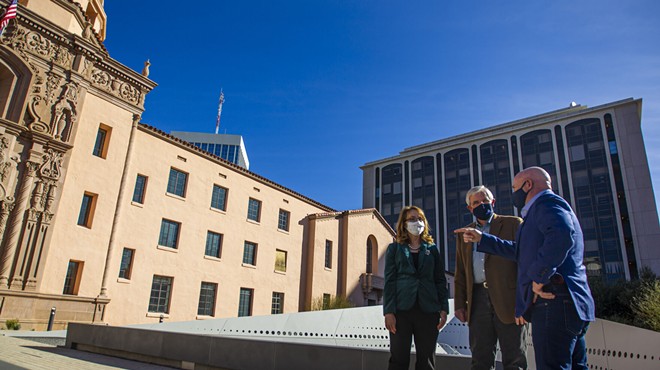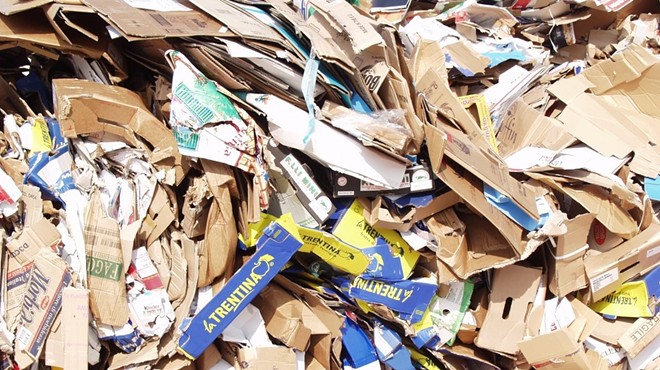Thursday, February 19, 2015
Scraps on Scraps Solves Your Compost Problems
Cooking for yourself at home can save you cash and it can also be a good outlet for your culinary creative energy. However, by the end of the meal, there's a good chance you've built up a small pile of odds and ends off of veggies, fruits and more. Unless you're an avid gardener and already have your own compost situation figured out, this food waste probably just gets thrown in the trash. Shannon Sartin calls this "compost guilt"—but you don't have to feel it anymore.
Sartin looked at her recycle bin and she looked at her garbage can. She knew composting the food was the way to go, but didn't want to have her own compost pile in her backyard. So, she enlisted her sister Moira's help to start a food waste pick up service called Scraps on Scraps.
Just one year in, Sartin's service boasts over 100 users all over Tucson with an estimated 35,000 pounds of food waste given to the Community Food Bank's farm Las Milpitas to turn into very usable compost, which in turn helps grow nutritious food for people who have limited access to it normally. Sartin says, in this way, she's lending a hand in the "redistribution of food wealth" from the astronomical amount of food wasted in this country alone every year to the people that truly need it.
"It's about closing gap of what we're wasting and what we can give back out," Sartin says. "We need to change and shift the way that we look at food insecurity."
For users of Sartin's unique service, the process is fairly simple. Drop-off customers can go to either St. Philip's Plaza Farmers Market on Sunday or the farmers market at Mercado San Agustin on Thursday to exchange full buckets for empty ones at the Scraps on Scraps table for $7 per month. For $13 per month, users can opt for bi-weekly home pick ups. The goal was to make the service easy and flexible for everyone.
"It's an extra step but its not like something you have to mentally be like 'oh man, I have to do this,'" she says. "I maybe put out my garbage once per month now."
Sartin, who lives with her daughter, says leaving this example for her child is important.
"Conscious consumerism is the driving base of the movement we're in right now. It's about who you're supporting and why," she says. "I want my daughter to know and be conscious of where what she's getting comes from."
It hasn't all been easy though. For starters, Sartin and her sister have never run a business before.
"I thought, 'I'm not writing a business plan cause I think business plans are bullshit.' Let's just buy some buckets," she says. "When it comes down to solving a problem, it's on me. It's been so unbelievably rewarding—and challenging."
Now she works full time and her sister goes to school full time, meaning work on Scraps on Scraps happens after hours, despite the fact that neither of them get paid for the work they do. Aside from time, the sheer issue of the bucket they would used was a challenge in itself, though they eventually found one that sealed so users of their service could keep the bucket in their kitchens without a rotting food smell. With many of the initial kinks worked out, Sartin is looking to expand to commercial customers and go into lower income neighborhoods, ideally packaging the business concept into something that could be done in any city anywhere.
In the end, Sartin's main goal is simple: "Waste less, use more, and compost what you don't."
Tags: scraps on scraps , shannon sartin , moira sartin , compost , tucson , food waste , home , delivery














